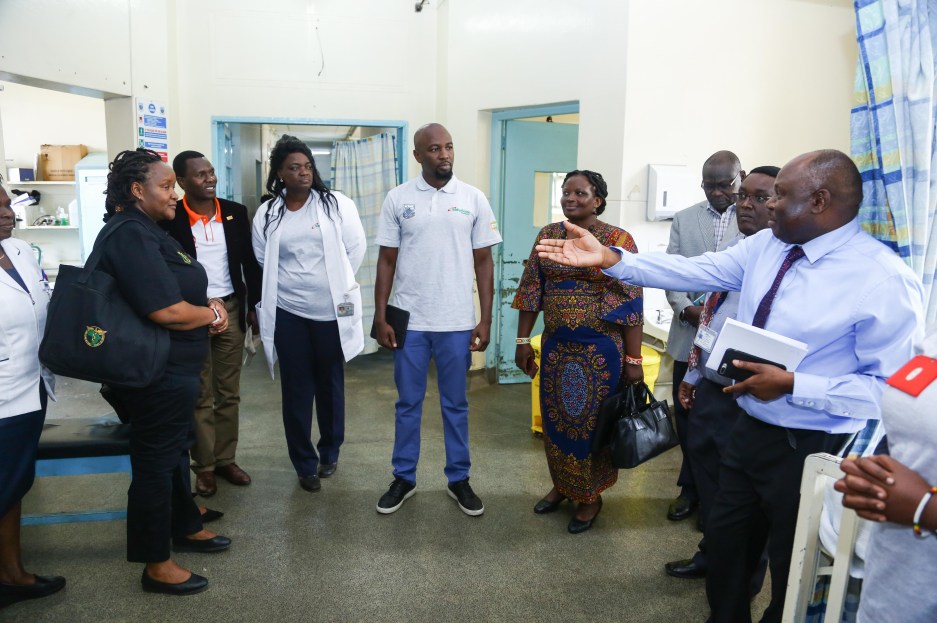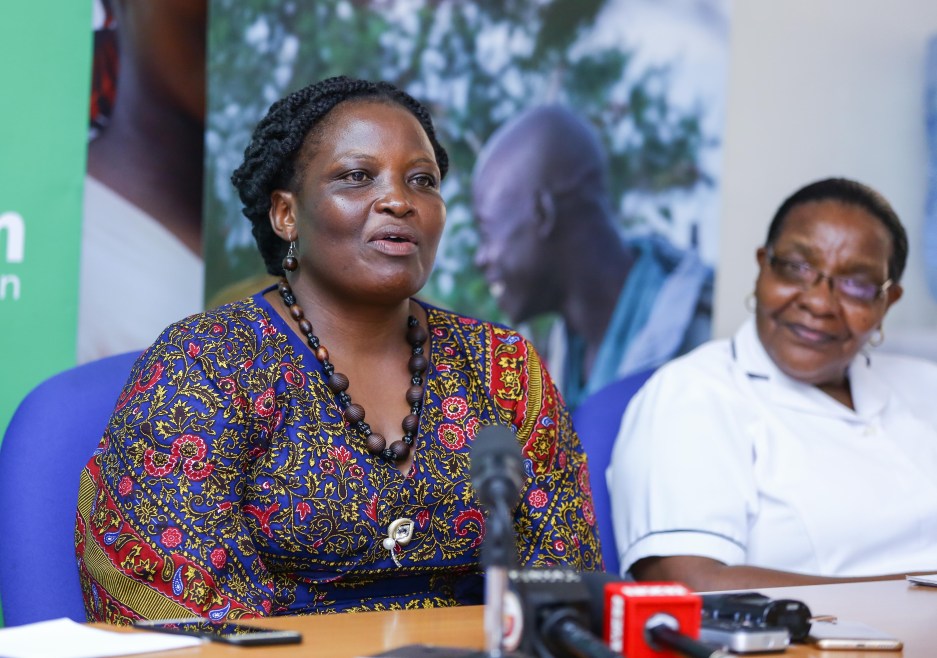Amref Health Africa in partnership with Kenyatta National Hospital, UNFPA, Safaricom Foundation and Flying Doctors’ Society of Africa held a two week Fistula Camp at Kenyatta National Hospital, from 27 June to 12 July, 2019. At the camp, fistula patients received free surgery, physiotherapy and medical advice. Through this partnership, tremendous progress has been made towards the treatment of fistula. Fistula is a debilitating condition caused by obstructed or prolonged labour often due to lack of skilled health care. It brings about suffering and women with fistula have to live with low esteem and stigma.
This fistula camp is an effort to empower women by letting them enjoy a quality and dignified life by screening for fistula, counselling and repair. A total of 469 people were screened for obstetric fistula and other gynaecological related conditions. Among them, 112 fistula patients had successful repair surgeries done.

Earlier this year, this group of partners carried out a free fistula camp at the Nyeri and Makueni County Referral Hospitals resulting in 175 successful reconstructive surgeries for women with fistula.
“These camps also offer an opportunity for other patients not necessarily suffering from fistula to get screened for other possible congenital ailments and subsequently get medical advice and attention. The World Health Organisation has termed fistula as the single most dramatic aftermath of neglected childbirth. It is estimated that there are 3,000 new fistula cases in Kenya each year and only 7.5% of these can access medical care. This means that annually, more than 2,700 women with new fistula cases do not receive the necessary medical attention” said Dr John Kinuthia, acting CEO at Kenyatta National Hospital.
“The biggest problem of fistula in Kenya is in rural areas where we have poor skilled birth attendance. The tragedy is not death, but what you allow to die within you while living. Restoration of dignity is the restoration of life.” said Dr Weston Khisa, the lead Fistula Surgeon.
“Fistula is repairable and if anyone comes across a patient or woman who has the fistula condition, they should direct them or to let them know that this is a problem that can be addressed. Above all, we encourage pregnant women to prevent this problem by seeking skilled birth attendance,” said Mrs Milcah Akala of the Amref Health Africa Outreach Programme.
“We believe that we want to deliver a world where every pregnancy is wanted, every birth is attended under skilled care and every young potential is achieved. We need to stress on quality skilled care. Women with fistula are currently classified under the conditions with a disability. We should restore and rehabilitate them. We must focus on the prevention aspect,” said Dr Dan Okoro, UNFPA Programme Specialist for /Maternal Health.

“Safaricom has been working on Fistula for the past three years. We are very happy to continue this noble course. Our key agenda is transforming lives and we are very glad to see women’s lives transformed. It is so encouraging that our co-partners want to continue holding hands to make sure that we continue supporting this noble cause,” noted John Mafabi, Safaricom Trade Marketing Manager.
Amref Health Africa is convinced that greater and lasting impact will only be achieved through promoting a health systems approach to fistula management. To achieve this, it is critical to scale up integrated prevention interventions through increase in utilisation and access to quality emergency obstetric care, and carry out community education and sensitisation to advocate for women’s health and rights to access care as needed and reintegration of fistula champions back into the society.
